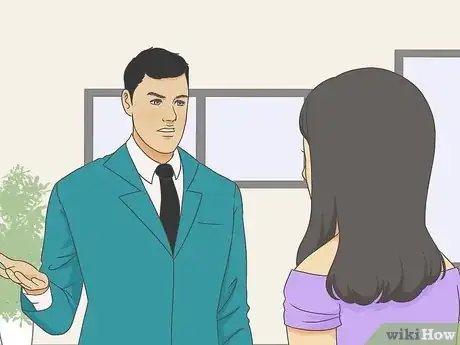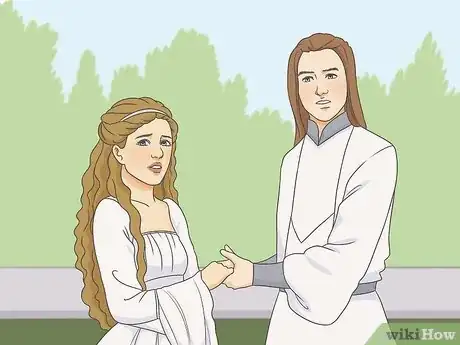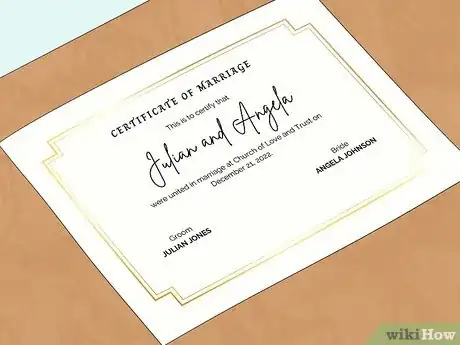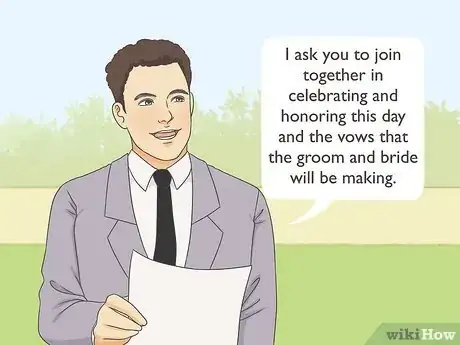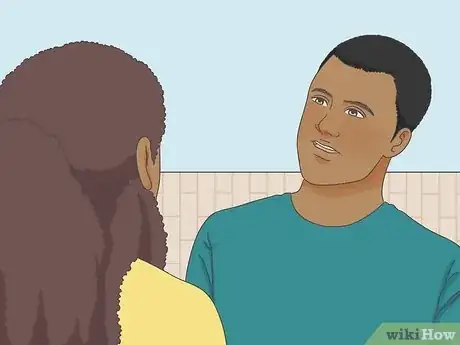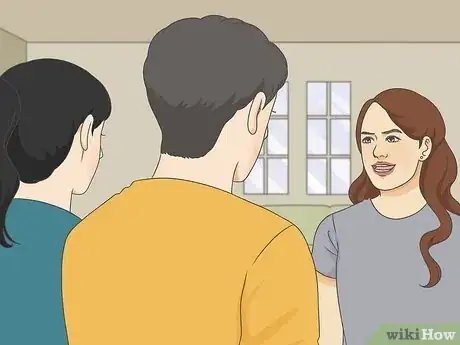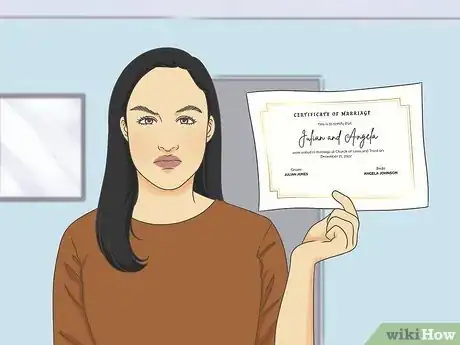This article was co-authored by wikiHow staff writer, Hannah Madden. Hannah Madden is a writer, editor, and artist currently living in Portland, Oregon. In 2018, she graduated from Portland State University with a B.S. in Environmental Studies. Hannah enjoys writing articles about conservation, sustainability, and eco-friendly products. When she isn’t writing, you can find Hannah working on hand embroidery projects and listening to music.
This article has been viewed 17,384 times.
Learn more...
We’ve all seen the rom coms: the officiant says “Speak now or forever hold your peace,” and a jilted lover stands up to object to the wedding. But do objections at weddings actually happen? And if so, how would you handle it? In this article, we’ll explain everything about wedding objections, from what might happen if someone objects to your wedding to what you should do if you want to object to a wedding. For the answers to all of your questions, read on!
Things You Should Know
- If someone objects at your wedding, the officiant will pause the ceremony so you can chat with the person in private. Then, you can restart the ceremony.
- Wedding objections are for legal issues only, not emotional ones. No one can stop a wedding unless they have a legal reason for doing so.
- If you aren’t religious, you don’t have to ask for objections during your ceremony.
- If you want to object at someone’s wedding, talk to them in private before the wedding instead.
Steps
What happens if someone objects at my wedding?
-
1The officiant will pause the ceremony. If there is an objection at your wedding, it’s up to the officiant to proceed. Oftentimes, they will take a brief pause while they decide what to do and how to handle the rest of the ceremony.[1]
- If the objection is minor and doesn’t have any legal standing, the officiant may even just keep going with the ceremony without pausing.
-
2You can have a private conversation with the objector before restarting the ceremony. It’s likely that the person who objects will want to speak with you and your partner. Take them to a private area and talk about their concerns. Then, whenever you’re ready, you can head back out and keep going with the ceremony.[2]
- If the person who objects isn’t willing to move on, you may have to ask them to leave.
- It can be nerve wracking to think about someone objecting at your wedding. Keep in mind that this isn’t common, and it’s much more likely that your ceremony will go off without a hitch! Calm your nerves before the wedding by relaxing with friends and family the night before.
References
- ↑ https://melmagazine.com/en-us/story/speak-now-or-forever-hold-your-peace
- ↑ https://melmagazine.com/en-us/story/speak-now-or-forever-hold-your-peace
- ↑ https://www.grunge.com/822339/the-surprising-origin-of-wedding-objections/
- ↑ https://melmagazine.com/en-us/story/speak-now-or-forever-hold-your-peace
- ↑ https://www.lifelongweddingceremonies.com/2022/04/11/objection-during-a-wedding-ceremony-in-okc/
- ↑ https://www.lifelongweddingceremonies.com/2022/04/11/objection-during-a-wedding-ceremony-in-okc/
- ↑ https://www.grunge.com/822339/the-surprising-origin-of-wedding-objections/
- ↑ https://www.jud.ct.gov/lawlib/palm_cards/Civil_Annulment.pdf

